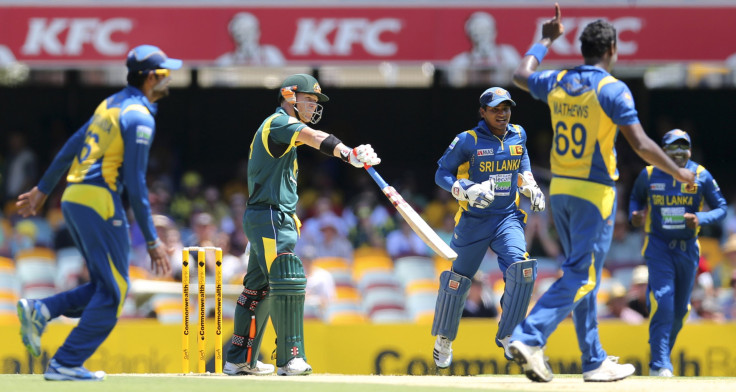Sticky Wicket: Sri Lankan Players Banned From Indian Cricket Tournament Over Tamil Issues

The ancient ethnic conflict in Sri Lanka between minority Tamils and dominant Sinhalese has now spread to the cricket fields of neighboring India.
The southern Indian state of Tamil Nadu – a province dominated by Tamils – has prohibited Sri Lankan cricketers and umpires from participating in the Indian Premier League’s Twenty20 cricket tournament in Chennai as a protest against Sri Lanka’s human rights abuses of the island nation’s ethnic Tamils. The tournament, which features nine teams and 76 matches, will begin on April 3.
Tamil Nadu’s chief minister Jayalalitha Jayaram notified Indian Prime Minister Manmohan Singh of her decision by letter in which she condemned “barbaric acts” the Sri Lankan military committed on Tamils.
The presence of Sri Lankans in Chennai, she warned, would only "aggravate an already surcharged atmosphere.”
The chairman of IPL, Rajeev Shukla, said in a statement that he agreed with the ban, citing that the security of all involved “whether players, spectators or those working in the stadiums, is of paramount importance.”
The Sri Lankan High Commissioner to India, Prasad Kariyawasam, said he regretted the state’s decision, calling it “unfortunate.”
The tournament had expected the participation of 13 Sri Lankan players, including stars such as Mahela Jayawardene and Muttiah Muralitharan.
Muralitharan, a Sri Lankan Tamil, has criticized the IPL’s decision.
"It's a sad [day] for cricket as we are not allowed to play in a certain part of India. It is a government decision, if they cannot provide security for us, we have to be cautious," he told NDTV.
"I played for 20 years in the [Sri] Lankan team, I did not have any problems as a Tamil. The government and the cricket board always supported me throughout my career even when I went through a lot of problems. Earlier there was a time of war between the Tamils and Lankans but now people are living in peace in my country. So the concerned authorities in India must come and see how we are living in Sri Lanka and forget what happened in the past. We don't want another war-like situation now.”
One Indian-based club in the tournament, the Chennai Super Kings, will be heavily affected by the ban as it has two prominent Sri Lankans on its roster, Nuwan Kulasekara and Akila Dananjaya.
(Pakistan players have been banned from playing in IPL matches since 2009, in the wake of the November 2008 terrorist attacks on Mumbai that were blamed on Pakistani militants.)
The development comes shortly after the U.N. Human Rights Council passed a resolution condemning the Colombo government for its systematic abuses of Tamils during the final stages of the 26-year civil war that engulfed the country until 2009, when Tamil separatists were finally defeated.
The Sri Lankan government, which earlier this month warned its citizens to exercise caution when traveling to Tamil Nadu, has already complained to the Indian government about the alleged instances of violent assaults against Buddhist Monks in Thanjavur and at the Central Chennai Railway Station.
Indeed, India is caught in a bind with respect to the Sri Lankan saga – although New Delhi generally supported the Sri Lankan government during its war against Tamil Tiger separatists, ethnic Tamils within India itself resented this policy.
Earlier this month, the Tamil-dominated the Dravida Munnetra Kazhagam party, a key ally of India’s government, withdrew from the ruling coalition to protest Delhi’s failure to properly censure Colombo over its brutal treatment of ethnic Tamils.
Tamil Nadu's chief minister Jayalalithaa is a member of the All India Anna Dravida Munnetra Kazhagam, a rival to the DMK, suggesting that despite the internal political differences within Tamil Nadu itself, Tamils in India are united in their anger over the Sri Lankan issue.
Some Indian media sources have condemned the IPL and Tamil Nadu officials for mixing sports with politics.
In an editorial in a Hindu newspaper, Jayalalithaa was accused of endorsing “chauvinism and discrimination in sport and politics.”
“To drop the Sri Lankan players on this ground is to blatantly discriminate on the basis of nationality and ethnic identity,” the editorial said.
© Copyright IBTimes 2025. All rights reserved.





















